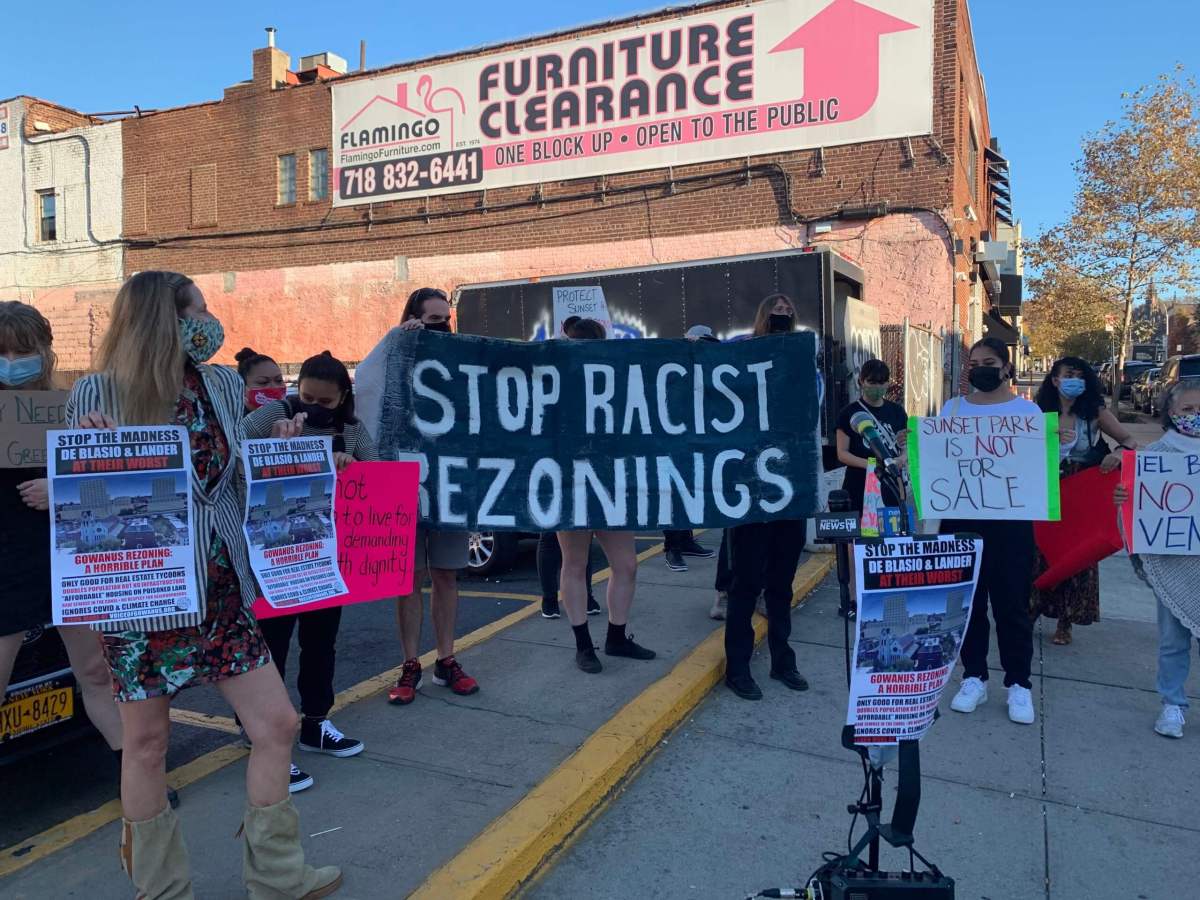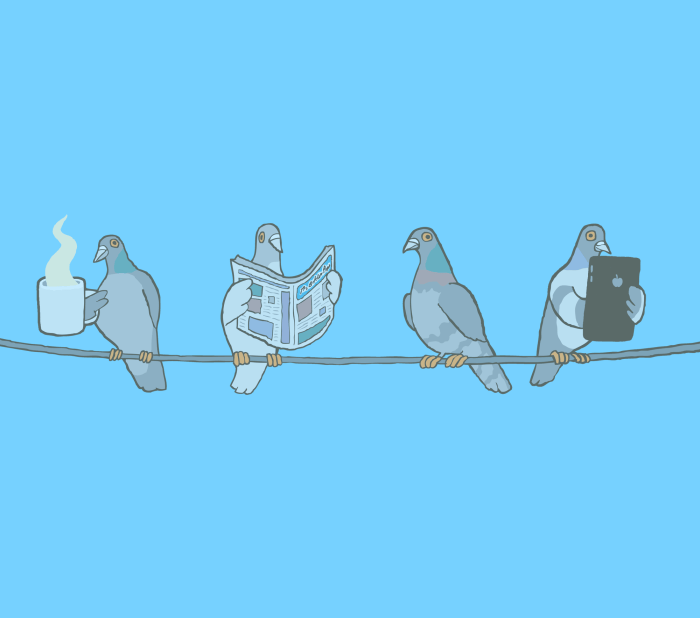The purpose of public community board meetings is accountability to the community they are representing. At last week’s Community Board 7 meeting, the members of the board failed to hold themselves accountable to the community, falling short of the obligations of their positions.
On the agenda for the Community Board 7 meeting on Nov. 18, 2020 was a vote on a proposal to rezone Fourth Avenue between 24th and 25th Streets in Sunset Park in order to allow a private developer to build a 14-story luxury high-rise where there is currently a single-level Dunkin Donuts. The proposed rezoning has been deeply contested over the last few weeks, with community members organizing, protesting, and submitting testimony in advance of the board’s vote.
As a lifelong resident of this neighborhood, the proposed rezoning is set to impact my life in far-reaching ways. This will be the first ripple in the next tidal wave of changes for our community. It will signal to other developers that Sunset Park is for sale, and will result in the continued displacement of many of our community members. I intended to say just that at the Nov. 18 hearing, but the board voted on the proposal before I was given the chance.
Unfortunately, the meeting lacked transparency from the very start. While adopting the agenda for what would become a five-hour long meeting, the committee chair motioned to split the public comment portion of the evening into two separate sections. The motion was approved without discussion or explanation of its impact.
During the first public comment period, board members asked that the community allow those who had never provided oral testimony on the 737 Fourth Ave. rezoning proposal to speak first. In response, numerous community members voluntarily yielded their time as a show of good faith in the board and the process they had established. We wanted to hear all of our neighbors voices, and believed that was a cause worth yielding our time for. What the board failed to mention to the public was that the second public comment period would not occur before, but after the vote on the proposed rezoning had already taken place, rendering any testimonies given during that time irrelevant.
And so we waited. We stood by patiently for the moment when we would be able to speak our minds to those in positions of power in our community. But the moment didn’t come. The board moved on from public comment (which notably included participation from the developer, Totem) and directly into member-only discussion, immediately followed by a vote on the proposal.
Those of us who were still waiting to testify were shocked and confused. Why were we not being afforded a chance to voice our positions before this heated proposal was voted on by the board members? What purpose would it serve to share our testimony after the vote took place? Where was the accountability?
While the chat feature for the Zoom meeting was disabled, several questions were asked in the Q+A as to why the public was being silenced. The questions were dismissed and we were rotely told that our comments would be entered in the public record. But we wanted our comments considered by the voting board members, not entered into a bureaucratic document no one was likely to read.
Several community board members voiced their frustration and embarrassment that the board was unwilling to hear the testimony of its constituents. And nevertheless, the vote was taken, and the proposal passed 25-16.
Many were left aghast. How can a community board speak on behalf of the community when they are not willing to listen to their primary stakeholders?
Instead, we the people listened. We listened as board members shut down residents of the community they serve, claiming that hearing residents testimonies wouldn’t change their vote anyway. We listened as one board member shared that the developer, Totem, had contacted her before the meeting to discuss her vote. We listened as another board member shared with disgust that Totem had offered to donate to her political campaign this summer while their rezoning plan was on the table. We listened, and we heard loud and clear.
We heard the community lose, and luxury real estate developers, once again, win.
And we residents of Brooklyn understand how these real estate deals function. We understand that residents generally get the short end of the stick, and that developers generally get their way. Most of us know this intimately. I, for one, live on a block with a deceitful development that was proposed as student housing, granted a variance, was built, and very quickly transformed into an out-of-context high-rise full of market-rate apartments on a residential street of wooden-framed row houses that have been dwarfed and decimated by the presence of this development. These row houses, like mine, have been falling down like dominoes, crushed to rubble by developers ever since that very first tower went up. And Im just one person, on one street, in one neighborhood of Brooklyn.
But this letter isn’t about developers and the way they pillage our neighborhoods.
This letter is about the community board that is supposed to protect our interests, that is supposed to speak on behalf of us, that is supposed to hear us, and listen and that, last week, failed to do even one of those things.
CB7 leadership misled their constituents into believing their testimony would be heard before the vote, implied that their word would be taken to heart and that they would be considered and counted, when they were in fact being disenfranchised, and their voice in the democratic process being nullified. Last week, CB7 failed its constituents and community.
To the community board members who stated that hearing the community’s testimonies wouldn’t have changed their vote anyway, as if to minimize the harm that was done, without seeming to understanding that they are meant to represent the voices of those in the community, and the vehicle for them hearing the voices of those in the community are the very public comments they seemed to diminish, I want to say: our testimonies should, in fact, change your minds. We are the ones you are supposed to represent.
After four hours of this community board meeting, during which my family ate dinner without me, my two young daughters went to bed without their mama, and I lost sorely needed hours at my freelance job to help support my family, I finally got a chance to speak.
I said, in the past tense now: I wished to urge the board to vote with love for our community. I wished to urge the board to not accept crumbs when we deserve true nourishment, true care, true justice. I wanted to urge the board to say no to this bad deal, to this rezoning. We had the power to set the standard, and that was our moment to use it. My heart breaks that this board thought we deserved so little. We can do better, we can do so much better for each other and for the community we love. I continue to believe that. I continue to believe in the power of the people. I continue to believe that we deserve true justice.
This fight doesn’t end here, just because this board let us down tonight. We will continue to fight on behalf of all the families of this community.
And I meant it.























